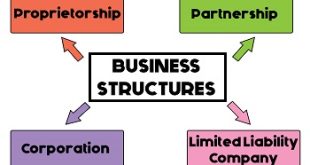Decoding the Digital Dilemma: Search Engine Optimization vs. Social Media Marketing
In the fast-paced world of digital marketing, groups are frequently confronted with the conundrum of selecting between two effective strategies: Search Engine Optimization (SEO) and Social Media Marketing (SMM).
Both processes provide awesome advantages and cater to special components of online visibility and consumer engagement. So, the query arises: which is better, web optimization or social media marketing? Let’s discover the nuances of every approach and consider their respective strengths and weaknesses.
Understanding SEO: SEO is a method aimed at enhancing a website’s visibility and rating in search engine consequence pages (SERPs). It entails optimizing more than a few factors of a website, such as content, meta tags,
and backlinks, to expand its relevance and authority in the eyes of search engines like Google, Bing, and Yahoo. The remaining purpose of search engine optimization is to pressure natural (non-paid) visitors to an internet site using making sure that it seems prominently in applicable search queries.
Pros of SEO:
Long-Term Sustainability: search engine optimisation efforts, when completed effectively, can yield long-term advantages and sustainable results. Once an internet site achieves an excessive rating in search results, it can proceed to appeal to natural site visitors over time with minimal ongoing maintenance.
Credibility and Trust: Websites that rank particularly in natural search consequences are regularly perceived as extra credible and truthful by users. Appearing at the pinnacle of search effects alerts customers that the internet site is authoritative and applicable to their query, growing the probability of clicks and conversions.
Cost-Effectiveness: While search engine optimization requires upfront funding of time and resources, it can be extra low-priced in the lengthy run in contrast to paid advertising. Organic site visitors generated through search engine optimization do now not incur direct charges per click or impression, making it a competitively priced approach for riding internet site visitors and leads.
Cons of SEO:
Time-Consuming: search engine optimisation is no longer a speedy fix; it requires time, patience, and ongoing effort to see results. It can take weeks or even months to see full-size upgrades in search rankings, specifically in aggressive industries or for exceedingly aggressive keywords.
Uncertainty and Algorithm Changes: Search engine algorithms are continuously evolving, and what works these days might also no longer work tomorrow. Keeping up with algorithm updates and adjusting web optimization techniques consequently can be difficult and can also require non-stop adaptation and experimentation.
Exploring Social Media Marketing: SMM entails leveraging social media systems such as Facebook, Instagram, Twitter, LinkedIn, and others to promote a brand, interact with audiences, and pressure internet site site visitors and conversions. It encompasses a range of tactics, which include developing and sharing content, jogging paid marketing campaigns, enticing followers, and constructing relationships with influencers and enterprise partners.
Pros of Social Media Marketing:
Targeted Audience Reach: Social media structures provide superiorconcentrationd obilities that permit groups to attain distinctly particular target market segments based totally on demographics, interests, behaviours, and more.
This permits extra unique and focused advertising efforts in contrast to normal advertising and marketing methods.
Engagement and Interaction: Social media offers a direct channel for corporations to interact with their audience, reply to inquiries, tackle concerns, and foster relationships. Building a robust social media presence can beautify company visibility, loyalty, and advocacy amongst followers.
Viral Potential and Amplification: Content shared on social media has the plausible of going viral and attaining a tons larger target audience than at first anticipated. Through likes, shares, comments, and reposts, content material can unfold swiftly throughout social networks, growing company publicity and awareness.
Cons of Social Media Marketing:
Platform Dependence and Algorithm Changes: Social media advertising and marketing techniques are concerned with the algorithms and insurance policies of every platform, which can be exchanged often and unpredictably. Changes to algorithms or insurance policies can affect the visibility and attainment of natural content, requiring agencies to adapt their techniques accordingly.
ROI Measurement Challenges: Measuring the return on funding (ROI) of social media advertising efforts can be difficult due to the complicated nature of social media interactions and the subject of attributing conversions at once to social media activities. Determining the effect of social media on enterprise desires such as sales, leads, or company cognizance requires strong monitoring and analytics tools.
Choosing the Right Approach: Ultimately, the choice between website positioning and social media advertising relies upon elements such as enterprise goals, goal audience, industry, budget, and resources. In many cases, an aggregate of each technique may also be the finest approach, as they complement every different and tackle extraordinary factors of the consumer journey.
Integrated Approach: Combining search engine optimization and social media advertising permits organizations to maximize their online visibility and engagement through leveraging the strengths of every strategy. website positioning can assist in attracting natural visitors and enhance internet site rankings, whilst social media advertising can beautify company awareness, engagement, and neighborhood building.
Tailored Strategy: Companies must tailor their advertising and marketing techniques to their precise targets and target market preferences. Conducting thorough research, checking out extraordinary tactics, and inspecting overall performance metrics can assist corporations decide the most beneficial combination of search engine marketing and social media advertising for their special needs.
In conclusion, there is no one-size-fits-all reply to the query of whether or not search engine optimization or social media advertising is better. Both techniques provide awesome benefits and challenges, and the most advantageous strategy relies upon the goals, resources, and goal target market of every business. By appreciating the strengths and barriers of every approach and adopting a holistic and built-in approach, companies can maximize theironlinee presence, hnteraction with their audience, and power significant consequences in the digital landscape.
Demystifying Search Engine Optimisation and SMM: A Comprehensive Guide to Search Engine Optimization and Social Media Marketing
In the widespread and ever-evolving panorama of digital marketing, two key techniques reign supreme: Search Engine Optimization (SEO) and Social Media Marketing (SMM). Both play pivotal roles in improving online visibility, riding internet site traffic, and ultimately, attaining enterprise objectives. But what precisely are web optimization and SMM, and how do they differ? Let’s delve into the fundamentals of every and discover their importance in the ultra-modern digital age.
Search Engine Optimization (SEO): SEO is the procedure of optimizing an internet site to enhance its visibility and rating in search engine outcomes pages (SERPs). Search engine optimisation aims to amplify natural (non-paid) site visitors to an internet site using making sure that it seems prominently for applicable search queries. search engine optimization encompasses a variety of methods and techniques, including:
Keyword Research: Identifying the phrases and phrases that customers are looking for about your products, services, or industry.
On-Page Optimization: Optimizing a range of factors of a webpage, such as meta tags, headings, and content, to align with goal key phrases and enhance relevance to search queries.
Off-Page Optimization: Building awesome back-links from different legitimate websites to enhance the authority and credibility of your web page in the eyes of search engines.
Technical SEO: Optimizing the technical elements of a website, such as website speed, mobile-friendliness, and website online structure, to decorate consumer trips and search engine crawlability.
The final aim of search engine marketing is to decorate a website’s visibility and entice centred site visitors from search engines, main to elevated company exposure, greater conversion rates, and elevated enterprise performance.
Social Media Marketing (SMM): SMM entails the use of social media systems such as Facebook, Instagram, Twitter, LinkedIn, and others to promote a brand, interact with audiences, and force internet site visitors and conversions. Unlike SEO, which focuses on enhancing search engine visibility, SMM revolves around constructing and nurturing relationships with customers on social media platforms. Key factors of SMM include:
Content Creation and Sharing: Creating and sharing content material such as posts, images, videos, and articles to interact with followers and appeal to new audiences.
Audience Engagement: Responding to comments, messages, and inquiries from followers to foster interplay and construct rapport.
Paid Advertising: Running centred advertising and marketing campaigns on social media systems to attain particular target audience segments and force favoured moves such as internet site visits, lead generation, or product purchases.
Influencer Marketing: Collaborating with influencers and enterprise specialists to leverage their attain and credibility and enlarge manufacturer consciousness and visibility.
SMM affords organizations a direct channel to interact with their audience, construct company loyalty, and power internet site visitors through social interactions and content material sharing.
Key Differences and Synergies: While website positioning and SMM are wonderful techniques with special goals and tactics, they are regularly complementary and work collectively to beautify typical advertising and marketing effectiveness:
Focus: search engine marketing in particular focuses on enhancing search engine visibility and attracting natural traffic, whilst SMM emphasizes constructing relationships and attracting customers on social media platforms.
Timing: search engine marketing is a long-term approach that requires time and steady effort to see results, whilst SMM affords extra instantaneous possibilities for engagement and interplay with audiences.
Visibility: website positioning enhances a website’s visibility in search engine results, whilst SMM will increase manufacturer visibility and engagement on social media platforms.
Traffic: search engine marketing drives natural site visitors to an internet site from search engines, whilst SMM drives visitors from social media systems via content material sharing, engagement, and advertising.
By integrating search engine optimisation and SMM into a complete digital advertising strategy, agencies can maximize their online presence, attain centred audiences throughout a couple of channels, and attain their advertising goals greater effectively.
Measuring Success: Both search engine optimisation and SMM require ongoing monitoring and size to gauge their effectiveness and have an effect on commercial enterprise goals:
SEO success can be measured via metrics such as natural traffic, keyword rankings, one-way link quality, and conversion rates.
SMM success can be measured via metrics such as followers, engagement (likes, shares, comments), internet site visitors from social media, and conversions attributed to social media channels.
By examining key overall performance indications (KPIs) and adjusting techniques primarily based on overall performance insights, organizations can optimize their web optimization and SMM efforts to power significant effects and obtain their advertising objectives.
Conclusion: In summary, website positioning and SMM are two quintessential factors of a complete digital advertising and marketing strategy, every providing special advantages and possibilities for companies to beautify their online presence, interact with audiences, and power results.
Byappreciatingn the fundamentals of search engine optimization and SMM and integrating them into a cohesive advertising strategy, companies can maximize their reach, visibility, and effect in the ultra-modern aggressive digital landscape.
 TontonEpisod.com
TontonEpisod.com


